On April 27…
“When I saw him, I called out ‘excellency,’ but he didn’t reply. I also shouted ‘comrade.’ Still nothing. His face was like wax and his stare glassy, but somehow blind. I read utter exhaustion, but not fear. When I arrested him in the name of the Italian people, Mussolini seemed completely lacking in will, spiritually dead.”
~Urbano Lazzaro
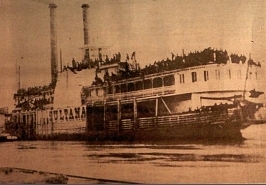
1865 – An explosion on a Mississippi River steamboat killed an estimated 1,547 people, mostly Union soldiers returning home after the Civil War.
Prisoners of war who had been held in hellish conditions in Alabama’s Andersonville and Cahaba prison camps were trying to make their way home to Illinois. The steamboat Sultana was one of their only options.
The steamboat was built to hold 376 passengers, but reports say that there were as many as 2,700 people on board as it lumbered up the Mississippi River. It took 17 hours to make the journey from Vicksburg to Memphis, where it stopped to pick up more coal.
Just hours after midnight, the trip came to a sudden end when one of the Sultana‘s three boilers suddenly exploded. Hot metal debris ripped through the vessel and two other boilers exploded within minutes of the first.
The passengers were killed by flying metal, scalding water, collapsing decks and the roaring fire that broke out on board. Some drowned as they were thrown into the water, but rescue boats were immediately dispatched, saving hundreds of lives.
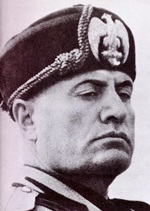
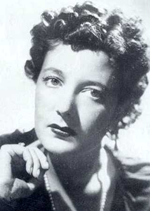
1945 – Deposed Italian dictator Benito Mussolini and his mistress Clara Petacci were stopped near the village of Dongo (Lake Como) by communist partisans.
The pair, who were attempting to flee to Switzerland before heading to Spain, were travelling in a German convoy when a group of locals, led by Pier Luigi Bellini delle Stelle and Urbano Lazzaro, forced it to halt a few miles short of the Swiss border.
Mussolini was wearing a German Luftwaffe helmet and overcoat, but the disguise did little to save him. For 20 years, he had built a cult of personality with his image emblazoned on posters and newspapers. The familiarity of his distinctive shaved head and granite jaw, even in disguise, had come back to haunt him.
Mussolini and Petacci were brought to a farmhouse and held overnight.
The story continues tomorrow.
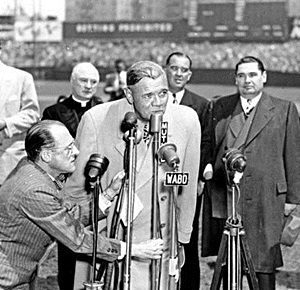
1947 – The New York Yankees hosted Babe Ruth Day at Yankee Stadium.
The event was held to honor the ailing baseball star, who was nearing the end of his life because of throat cancer.
Three songs were released on this date in 1964. They would take turns knocking each other off the #1 spot on the Billboard Hot 100.
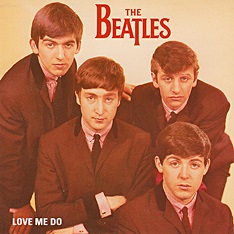
1964 – The Beatles released Love Me Do in the U.S.
Rock Factoid: The single, issued by Capitol Records, featured session drummer Andy White instead of Ringo Starr.
Producer George Martin, unhappy with Pete Best’s work on the original version of the song (recorded on June 6, 1962) was not available on September 4 when Ringo recorded his take on the song.
Unfamiliar with Starr’s ability – he had only been hired the previous month – Martin had already arranged for White to record a third version of the song on September 11 with Ringo assigned to play the tambourine.
When the single was originally released on Parlophone Records in the UK in October 1962 – that version included Ringo – it peaked at #17.
The American version with White reached #1 in May.
This is the Andy White version…

1964 – The Dixie Cups released Chapel Of Love.
The single reached #1 on the Billboard Hot 100 on June 6, knocking the Beatles Love Me Do out of the top spot and remained at the top for three weeks.
1964 – Peter & Gordon released A World Without Love.
Written by Paul McCartney, the single would go on to become Peter & Gordon’s only #1 hit in America, knocking the Dixie Cups off the top of the chart on June 27.
Rock Factoid: The lead guitarist on the recording was studio musician Vic Flick who is famous for the iconic guitar lick for the James Bond movie theme.
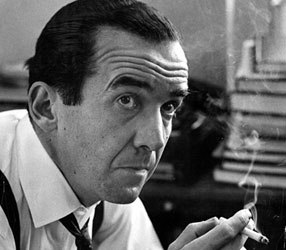
1965 – Broadcast journalist Edward R. Murrow died of cancer at the age of 57.
Murrow’s meteoric career with the Columbia Broadcasting Company spanned 25 years and included his legendary takedown of U.S. Senator Joseph McCarthy.
His days with CBS ended in January 1961 when President Kennedy named him head of the United States Information Agency.
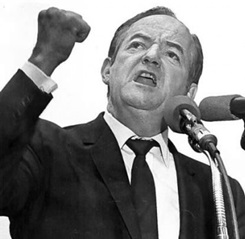
1968 – Vice President Hubert Humphrey announced his candidacy for the Democratic presidential nomination. In an interview, he said he supported the current U.S. policy of sending troops “where required by our own national security.”
President Lyndon B. Johnson, frustrated with his inability to reach a solution in Vietnam, had announced that he would neither seek nor accept the nomination of his party for re-election.
When the Democratic National Convention opened in Chicago in August, a conflict immediately erupted over the party’s Vietnam platform. While demonstrations against the war took place in the streets outside the convention hall, Humphrey won the party nomination.
He was ultimately defeated in the general election by Republican Richard Nixon, who criticized Johnson’s handling of the war and ran on a platform of achieving “peace with honor” in Vietnam.
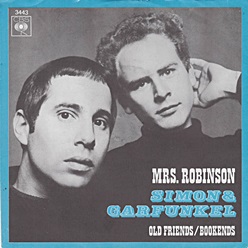
1968 – Simon & Garfunkel released Mrs. Robinson.
The single reached #1 on the Billboard Hot 100 and won the Grammy Award for Record of the Year.
Rock Factoid: Paul Simon wrote the song with “Mrs. Roosevelt” as the working title but changed it to “Mrs. Robinson” for the soundtrack of The Graduate.
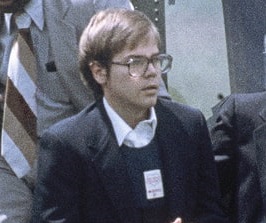
1982 – John W. Hinckley Jr. went on trial in Washington, D.C., for the shooting of President Ronald Reagan in 1980. He was acquitted by reason of insanity.

1987 – The Justice Department barred Austrian President Kurt Waldheim from entering the United States, saying he had aided in the deportation and execution of thousands of Jews and others as a German Army officer during World War II.
Although he had served as U.N. Secretary-General from 1972-1981, Waldheim’s past as an officer in the mounted corps of the SA was revealed when he ran for President of Austria, although declassified CIA documents showed the CIA had been aware of his wartime past since 1945.
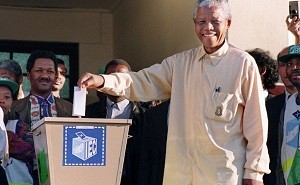
1994 – More than 22 million South Africans turned out to cast ballots in the country’s first multiracial parliamentary elections.
An overwhelming majority (62.6%) chose anti-apartheid leader Nelson Mandela to head a new coalition government that included his African National Congress Party, former President F.W. de Klerk’s National Party (20.4%), and Zulu leader Mangosuthu Buthelezi’s Inkatha Freedom Party (10.5%).
In May, Mandela was inaugurated as president, becoming South Africa’s first black head of state.
April 27 is now a public holiday (Freedom Day) in South Africa.

2006 – Construction (finally) began on the Freedom Tower (later renamed One World Trade Center) in New York City.
The symbolic cornerstone was laid down in a ceremony on July 4, 2004, but further construction of the tower was stalled due to disputes over money, security and design. The last major issues were resolved on April 26, 2006 with a deal between developer Larry Silverstein and the Port Authority of New York and New Jersey.
On May 10, 2013, the last two sections of the building’s spire were installed, bringing the tower to its full height of 1,776 feet.

2011 – The 2011 Super Outbreak tore through the southeast of the U.S.
The largest, costliest, and one of the deadliest tornado outbreaks ever recorded, devastated parts of Alabama, Mississippi, Georgia, and Tennessee.
Two hundred five tornadoes touched down on April 27 alone, killing more than 300 and injuring hundreds more.
Compiled by Ray Lemire ©2020 RayLemire.com. / Streamingoldies.com. All Rights Reserved.